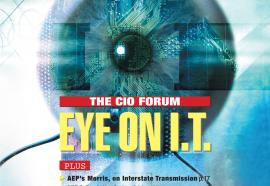Federal Communications Commission
People (January 2014)
Opting Out
Providing reasonable options for customers who object to smart meters.
Customers in some markets are demanding the right to opt out of smart meter deployments. Their concerns involve radio frequency (RF) emissions and potential privacy breaches. Whether these concerns are valid or not, some regulators are requiring options for customers who don’t want smart meters. The right approach can satisfy concerns without undue costs and complexities.
Technology for the Masses
The consumer-centric smart grid and its challenge for regulators.
Federal and state regulators play a critical role in the evolution of the smart grid. Lawmakers face a host of questions, from deciding who owns consumer data and how it can be used, to defining a new range of regulated and unregulated utility services and applications. How much regulation will be needed to manage the transformation to a smart grid? And how much regulation will be too much?
Regulatory Reform in Ontario
Successes, shortcomings and unfinished business.
A rebuttal to conclusions made in three Fortnightly articles that service quality declined in Ontario because of a performance-based regulation plan implementation.
Dealing with Asymmetric Risk
Improving performance through graduated conditional ROE incentives.
Unlike the majority of performance-based regulation plans, alternative design paradigms require less data, by instead allowing firms to reveal performance potential. In an asymmetric environment, regulators don’t have needed information, but that can be overcome with better models and incentives.
Defining the New Policy Conflicts
Failing to address and adapt to the new ratemaking realities could result in increased costs for the economy.
The approaching 100th anniversary of regulation by public utility commissions in the United States calls for some reflection. How much have things changed, and how much have they stayed the same?
Letters to the Editor
Jim Lundrigan, New Haven, Conn.: After reading Gordon van Welie’s article (“New England: A Critical Look at Competition,”) I couldn’t help but think back to California in 2000. Van Welie, who is president and CEO of ISO New England, is trying to feed the citizens of New England the same brand of malarkey that the California ISO fed the California Public Utilities Commission in 2000 when wholesale and retail prices in California were perfectly linked and nearly succeeded in bankrupting the wealthiest state in the country.
John S. Ferguson, Richardson, Texas: The article of Michael J. Majoros Jr. (“Rate-Base Cleansings: Rolling Over Ratepayers,”) attracted my attention, because I perceive it to propose a solution—PUCs’ need to recognize refundable regulatory liabilities—for a problem that does not exist.
Betting on Broadband
Are consumer broadband over powerline (BPL) services enough to make the business case for utilities?
PJM/Midwest Market: Two Rival Groups Battle Over Grid Pricing
Should transmission owners get paid extra for distance and voltage?










